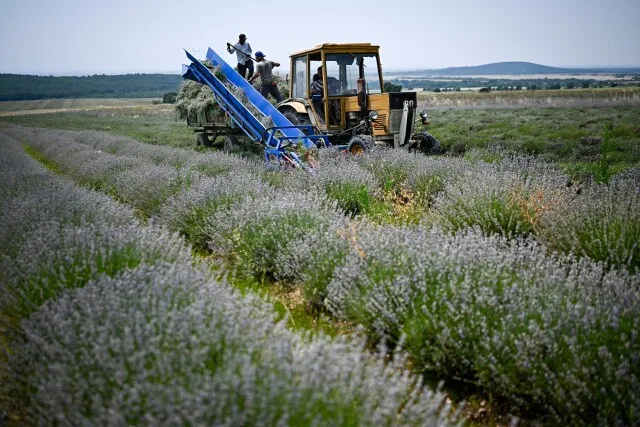As Bulgaria’s lavender oil industry completes a successful harvesting season, concerns are emerging about its future, driven by a combination of global oversupply and potential EU regulations. Lavender oil producers in Bulgaria fear that upcoming EU regulations aimed at restricting harmful chemical substances may lead to the inclusion of health warning labels on their lavender oil products. This, in turn, could reduce consumer demand and threaten the industry’s viability. These concerns arise against a backdrop of existing challenges, including low prices, labor shortages, climate change, and pest-related issues.
Producers and farmers across the EU have joined forces to voice their opposition to what they perceive as onerous regulations from Brussels. Essential oils, including lavender oil, fall under the purview of two key EU chemical laws: REACH and CLP. The aim of these laws is to provide consumers and businesses with better information about substances that may have health risks. While the review of REACH has been postponed until the fourth quarter of 2023, the EU Commission’s proposal to clarify substance classification and labeling under CLP is scheduled for a plenary vote in October. In response to producers’ concerns, the EU Council has suggested a four-year exemption from the text’s implementation.
Overproduction in recent years has led to a significant decline in lavender oil prices, pushing them below the costs of production. Lavender oil is a labor-intensive product, with substantial quantities of lavender required to produce just one kilogram of this «purple gold» used in cosmetics and perfumes. Prices have dropped sharply, currently ranging from 20 to 35 euros per kilogram, compared to a peak of 140 euros in 2018. Lavender farmers are grappling with the prospect of having to destroy lavender fields to restore pricing levels that enable them to operate profitably.
While Brussels has clarified that it does not intend to conduct molecule-level analysis of essential oils or ban them, the lavender oil industry remains concerned about the potential repercussions of the impending regulations.
As the Bulgarian lavender industry navigates these challenges, some farmers may face the difficult decision of destroying lavender fields to attain price levels that allow for sustainable operations.

































